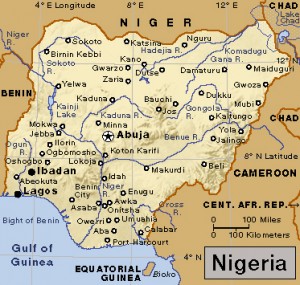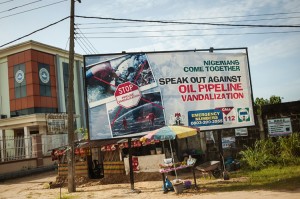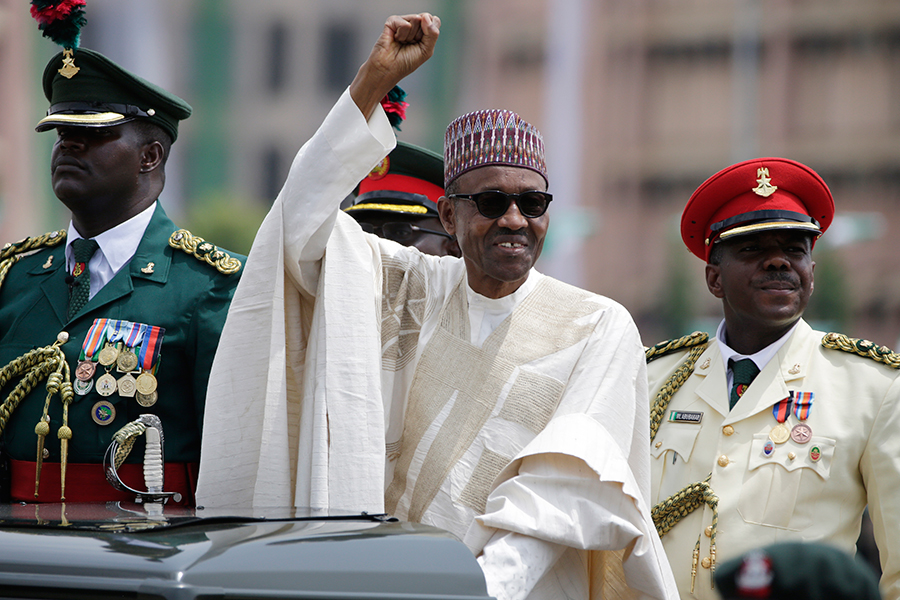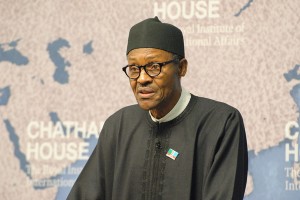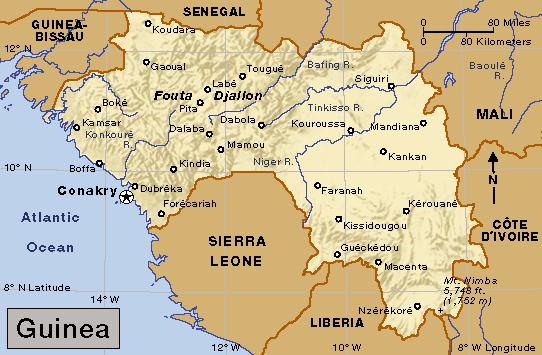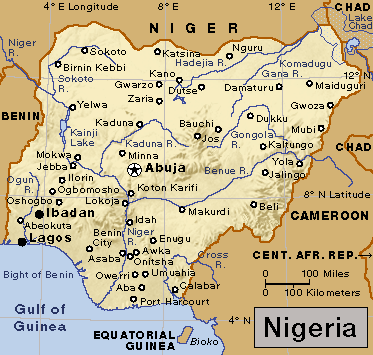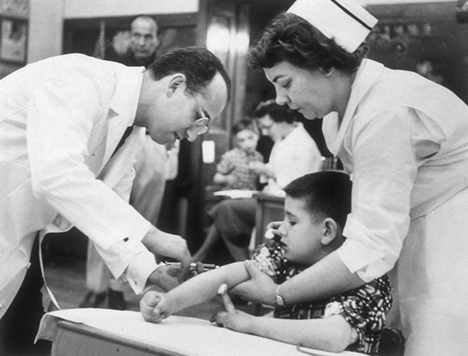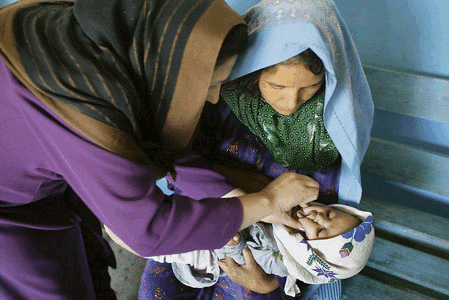Language Monday: Nigeria
Monday, July 9th, 2018July 9, 2018
More than 500 languages are spoken in the African nation of Nigeria—one of the highest instances of language diversity in any country on Earth! By comparison, the continent of Europe has only about 300 languages. English is the official language of Nigeria, and it is taught in schools throughout the country. English, however, is not the country’s most commonly used language. The distinct languages of Nigeria’s three largest ethnic groups—Hausa, Igbo, and Yoruba—are heard more often throughout the diverse country.

The flag of Nigeria flies over a nation of nearly 200 million people who collectively speak more than 500 different languages. Credit: © Loveshop/Shutterstock
Yoruba is spoken mostly in southwestern Nigeria in the region that once made up much of the kingdom of Benin. Yoruba is part of the huge Niger-Congo language family. Almost 30 million people speak Yoruba, a tonal language with three tones. In tonal languages, varying from higher to lower pitches when speaking can change the meaning or intention of words and sentences. Yoruba is also pluricentric, meaning there are many regional versions of the language. The three standard versions are Central Yoruba, Northwest Yoruba, and Southeast Yoruba.
Many people of southeastern Nigeria speak Igbo, a language that is also part of the Niger-Congo family. There are about 24 million Igbo speakers, most of whom belong to the Igbo ethnic group. A Latin script is used to write Igbo. This script was developed during the period of British colonization in the 1800′s.
Hausa has the most speakers in Nigeria, with around 35 million native speakers and 15 million speakers who have learned it as a second language. Hausa is part of the Afro-Asiatic language family. Native speakers of the language are largely part of the Hausa ethnic group found in northern Nigeria, Niger, and Chad. These nations occupy the area of the former Songhai Empire that peaked during the 1400′s and 1500′s. Since the Songhai era, Hausa has been a common trade language throughout western Africa. It is spoken by many people beyond Nigeria, unlike Igbo or Yoruba.
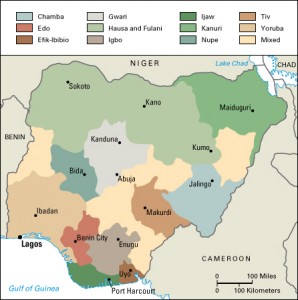
Click to view larger image
The population of Nigeria consists of more than 250 ethnic groups. The three largest are the Hausa, the Igbo, and the Yoruba. Credit: WORLD BOOK map
The great diversity of languages in Nigeria is due in part to the way the nation came to be. Prior to early European contact in the late 1400’s and the consequent colonization, what is now Nigeria was a diverse collection of smaller kingdoms and states, many with their own languages and dialects. The region was also a crossroads and trading hub for all western Africa, which meant many far-flung languages were also spoken there. Later, neighboring kingdoms invaded, further diversifying the area’s languages and cultures.
The enigmatic Nok civilization flourished in what is now central Nigeria from about 500 B.C. to A.D. 200. In the following centuries, the region was ruled by the Islamic Kanem and Bornu kingdoms, and the mighty Songhai Empire flourished there beginning in the 1400’s. The Yoruba culture has dominated what is now southern Nigeria since the 900’s. The magnificent kingdom of Benin rose to prominence in the early 1400′s. It developed in the fertile lands between Lagos and the Niger River Delta and grew into a prosperous trade center. By the early 1800′s, the Fulani ruler Uthman Dan Fodio had conquered most of the Hausa states of what is now northern Nigeria and established an empire.
Throughout history, Africa rulers usually allowed people to maintain their indigenous languages rather than enforce their own language on minority or conquered populations. Some languages were especially important as a lingua franca (language of trade) so the diverse communities could communicate with one another and keep the prosperous trading going. Such languages remain important in Nigeria today, and most Nigerians speak at least one language in addition to their native tongue.
During the late 1800′s, the United Kingdom established protectorates in parts of southern Nigeria and made English the language of education and government. A British trading firm called the Royal Niger Company ruled most of northern Nigeria until 1900. In 1914, the United Kingdom joined the northern and southern regions into one unit—the Colony and Protectorate of Nigeria. On Oct. 1, 1960, what had been a loose collection of linguistically diverse kingdoms and empires became the unified nation of Nigeria.

